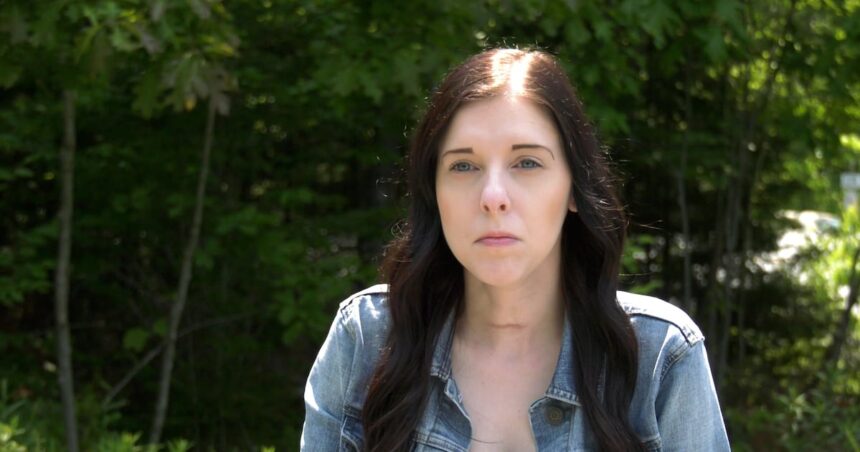I stepped into the living room of Carol MacDonald’s Halifax home, where sunlight filtered through a large bay window, catching the glimmering edges of family photos lining the mantle. The 58-year-old retired schoolteacher sat across from me, her hands wrapped around a mug of tea that had long gone cold.
“For six weeks, I planned my own funeral,” she told me, her voice steady but thin. “I chose readings, picked music, even started giving away keepsakes to my children. All because a doctor told me I had terminal cancer when I didn’t.”
MacDonald’s nightmare began last November when persistent stomach pain led her to the emergency room at the QEII Health Sciences Centre. After an initial scan showed concerning shadows on her liver, a specialist delivered devastating news: stage 4 pancreatic cancer with liver metastases. She was given months to live.
“He was so certain,” MacDonald recalled. “He showed me the scans, pointed to what he called ‘classic presentation’ of pancreatic cancer. He said treatment would only buy time, not cure me.”
What followed was what MacDonald describes as “falling through a trapdoor.” She told her three adult children, her 85-year-old mother, and her circle of friends. Her employer arranged compassionate leave. Her sister flew in from Alberta to help make end-of-life arrangements.
But something unexpected happened during a follow-up appointment six weeks later. A different specialist reviewed her case, ordered additional tests, and discovered that MacDonald didn’t have cancer at all. She had a benign liver condition called focal nodular hyperplasia, combined with gallstones that explained her pain.
“The relief was immense,” MacDonald said, “but it was immediately followed by rage. Pure rage.”
Cases of misdiagnosis aren’t new to Canada’s healthcare system. According to the Canadian Patient Safety Institute, diagnostic errors affect approximately 1 in 20 patients annually. A 2019 study published in the Canadian Medical Association Journal found that diagnostic errors were involved in 46% of harmful incidents reported in Canadian hospitals.
Dr. Lisa Barrett, an infectious disease specialist and assistant professor at Dalhousie University not involved in MacDonald’s case, explained that while misdiagnoses happen, this type of error is particularly troubling.
“There’s a significant difference between saying ‘we need more tests’ versus delivering a definitive terminal diagnosis,” Barrett told me during a phone interview. “The standard of care requires confirmation through multiple diagnostic approaches, especially when delivering life-altering news.”
Nova Scotia Health has declined to comment on MacDonald’s specific case, citing patient privacy. However, spokesperson Jennifer MacLean provided a statement acknowledging that the health authority “takes all patient concerns seriously” and has “processes in place to review adverse events and improve care.”
For MacDonald, those six weeks living with a false cancer diagnosis changed her irrevocably. She described lying awake at night imagining her last Christmas, planning how to say goodbye to her grandchildren, and the crushing anxiety that followed her every moment.
“I lost 18 pounds in those six weeks. My hair started falling out from stress. My blood pressure went through the roof,” she said, showing me the medication she still takes for anxiety. “The experience broke something in me that I’m not sure will ever be fixed.”
When I visited the QEII Health Sciences Centre the following day, I observed the busy oncology department where patients waited, some anxious, some resigned. One nurse, who requested anonymity because she wasn’t authorized to speak to media, confided that diagnostic pressures are immense.
“Doctors are overworked and rushing between patients. Sometimes they’re covering specialties outside their primary expertise due to staffing shortages,” she explained. “It’s not an excuse, but it’s the reality of our system right now.”
MacDonald’s case highlights broader concerns about accountability in healthcare. Paul Harte, a Toronto-based medical malpractice lawyer, notes that while provincial healthcare systems have complaint mechanisms, patients often face significant barriers when seeking redress for errors.
“The system is designed to protect itself,” Harte said during our conversation. “Without legal action, many patients never receive full explanations, let alone compensation for psychological harm caused by medical errors.”
MacDonald has filed a formal complaint with the College of Physicians and Surgeons of Nova Scotia and is considering legal action. But her primary motivation isn’t financial.
“I want three things,” she explained, ticking them off on her fingers. “An acknowledgment of what happened. Changes to prevent this from happening to someone else. And for someone to recognize the trauma I experienced isn’t just going to disappear because the diagnosis was wrong.”
The psychological aftermath of a false terminal diagnosis is an under-researched area. Dr. Katy Kamkar, clinical psychologist at the Centre for Addiction and Mental Health, explains that such experiences can trigger post-traumatic stress disorder.
“These patients experience actual trauma,” Kamkar said. “They’ve confronted their mortality in the most intimate way, made peace with death, said goodbyes. Finding out it was all unnecessary doesn’t simply erase that trauma.”
MacDonald now attends weekly therapy sessions and has joined a support group originally intended for cancer survivors. “Ironically, they understand better than anyone what I went through,” she said. “The anticipatory grief, the existential questions, the way your perception of time completely transforms.”
As our interview concluded, MacDonald walked me to her garden, where early spring bulbs were pushing through the soil. She knelt to brush aside some dead leaves, revealing tender green shoots.
“I should be grateful, right? That’s what everyone says—’at least you don’t have cancer,'” she said, looking up. “But gratitude is complicated when you’ve been traumatized by the very system meant to care for you. I’m alive, yes. But I’m forever changed by those six weeks of believing I wasn’t going to be.”
For patients who have experienced similar diagnostic errors, the Patient Advocate Network of Nova Scotia offers support services and guidance for navigating the complaint process. Meanwhile, MacDonald continues her fight for accountability while rebuilding the life she once thought she was losing—a life now shadowed by a different kind of uncertainty.






